 Teaching students how to research in 3rd and 4th grade is essential to their learning moving forward. Researching allows students to teach themselves information which causes that information to stick into their brains!
Teaching students how to research in 3rd and 4th grade is essential to their learning moving forward. Researching allows students to teach themselves information which causes that information to stick into their brains!
Today I am going to share a few ideas with you on how to use research in your classroom!
Allowing the students to choose their topic
When doing research, allowing students to choose their topic is very powerful. They will be more interested in a topic they choose than a topic you assigned.
But you don’t always want to be in 1 million different places when helping students with their research, so putting a main overlying topic is also useful.
For example, you could all be doing research on animals, but the students pick the animal they want to research.
Choosing 4 subtopics
After choosing a main topic, I suggest having students (or the entire class) choose four subtopics. This will help them to narrow down their research and get focused.
So, let me give you an example.
You are all researching animals and each child chooses one. Your subtopics could be habitat, food, adaptations, and fun facts.
The key here is that you don’t choose these subtopics for them. You can either lead the entire class in a discussion to choose the four subtopics together or let each individual child choose their four subtopics on their own!
What websites to use?
Below is a list of great websites to send your students to research!
How to teach them Digital Responsibility
Giving them research websites that you have vetted is great, but it is also great to work on teaching them how to find a good website on their own.
I suggest using Kiddle.co and teaching them how to skip past the ad websites, how to find one that is reputable, etc.
Before each day of researching, you should pull up one of the student’s topics on your SmartBoard and explicitly show them how you would find information on that topic.
I also suggest doing a scenario discussion before each day. Example: “If you were to see an ad on a website that looked very inappropriate, what would you do?” or “If you are directed to a website that doesn’t feel right, what would you do?” These discussion questions can lead to powerful digital responsibility discussions.
Research Units to Try
Here are some research units to get started with!
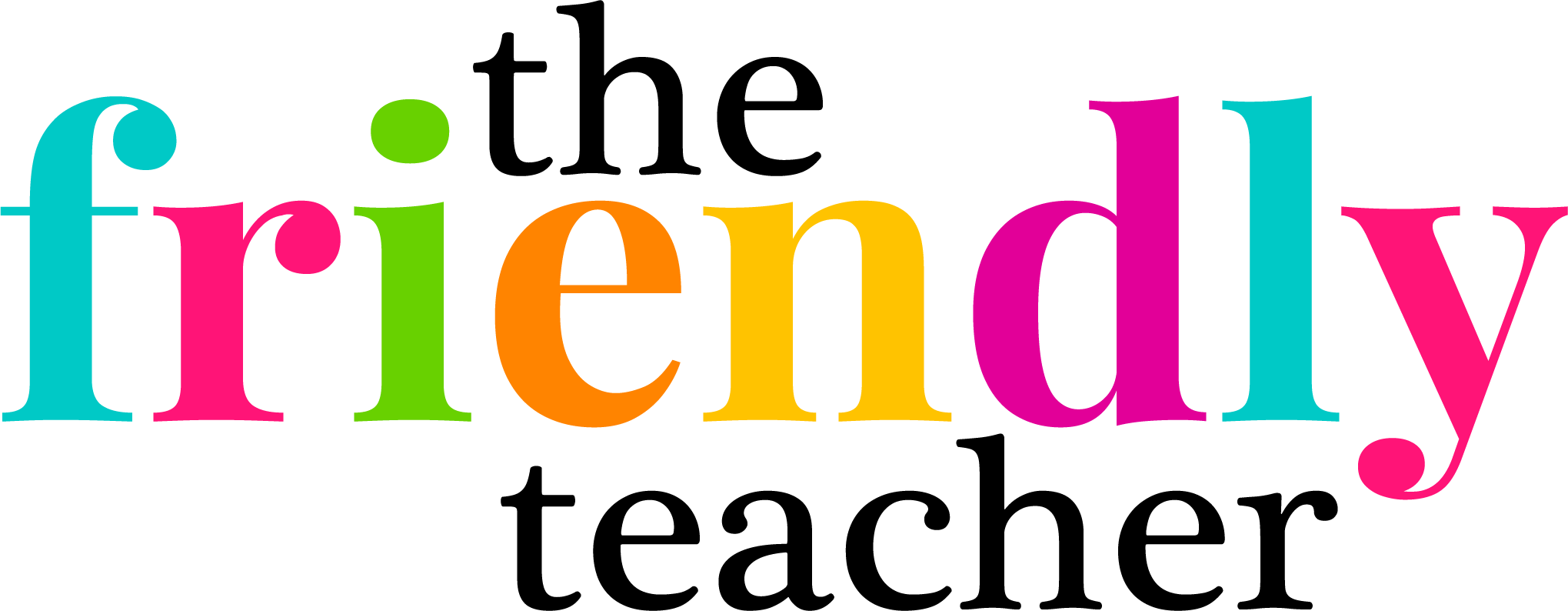


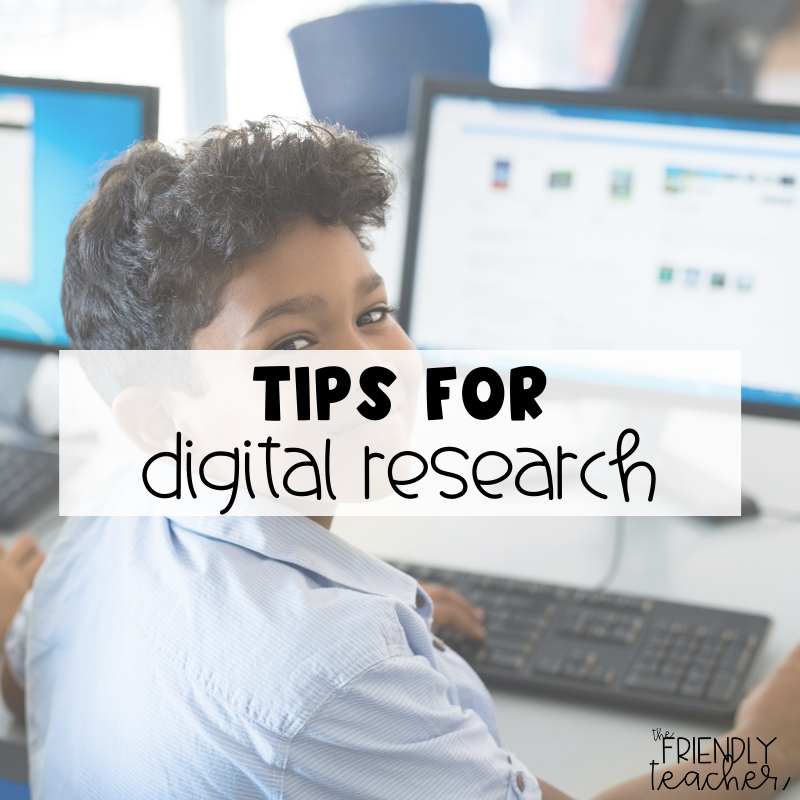
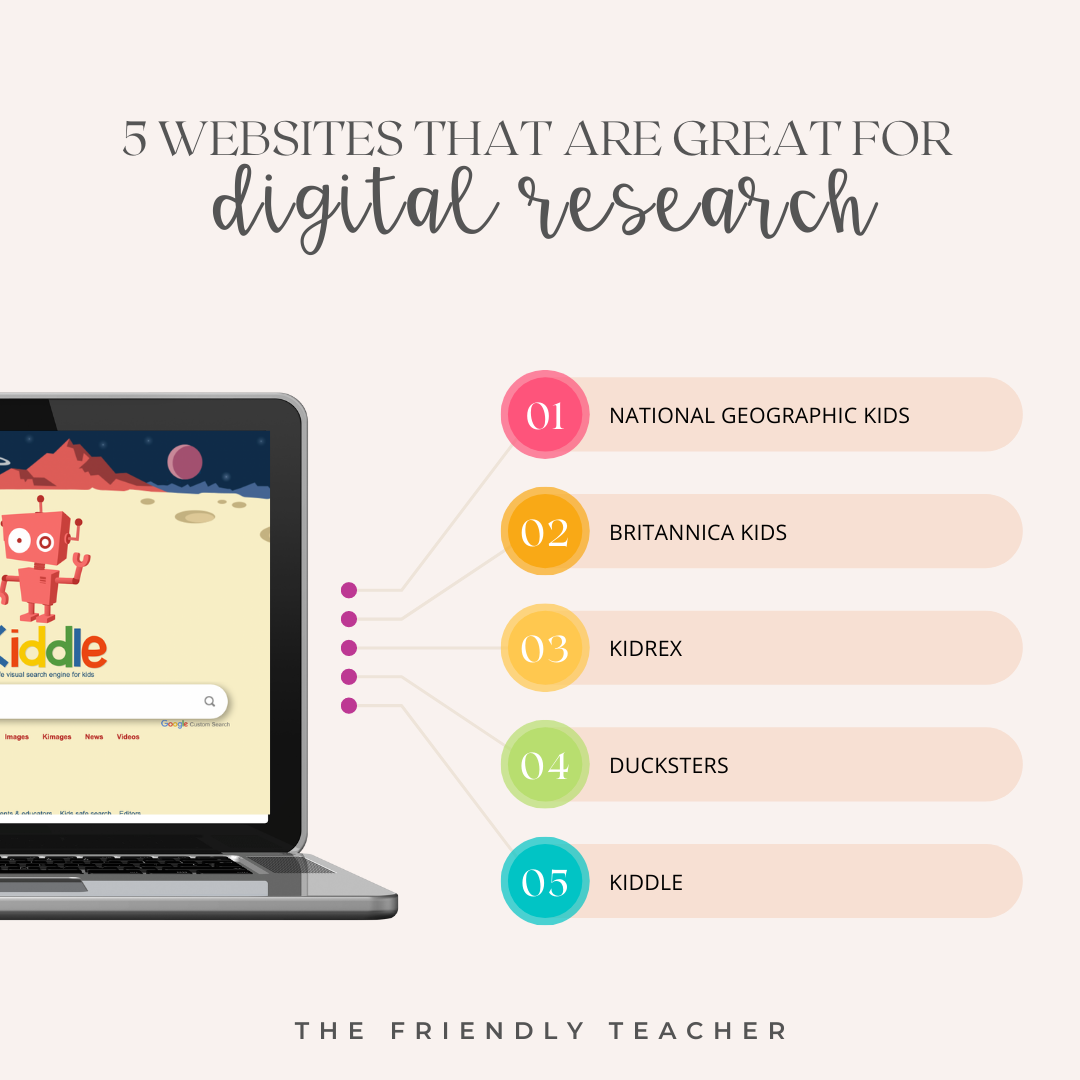
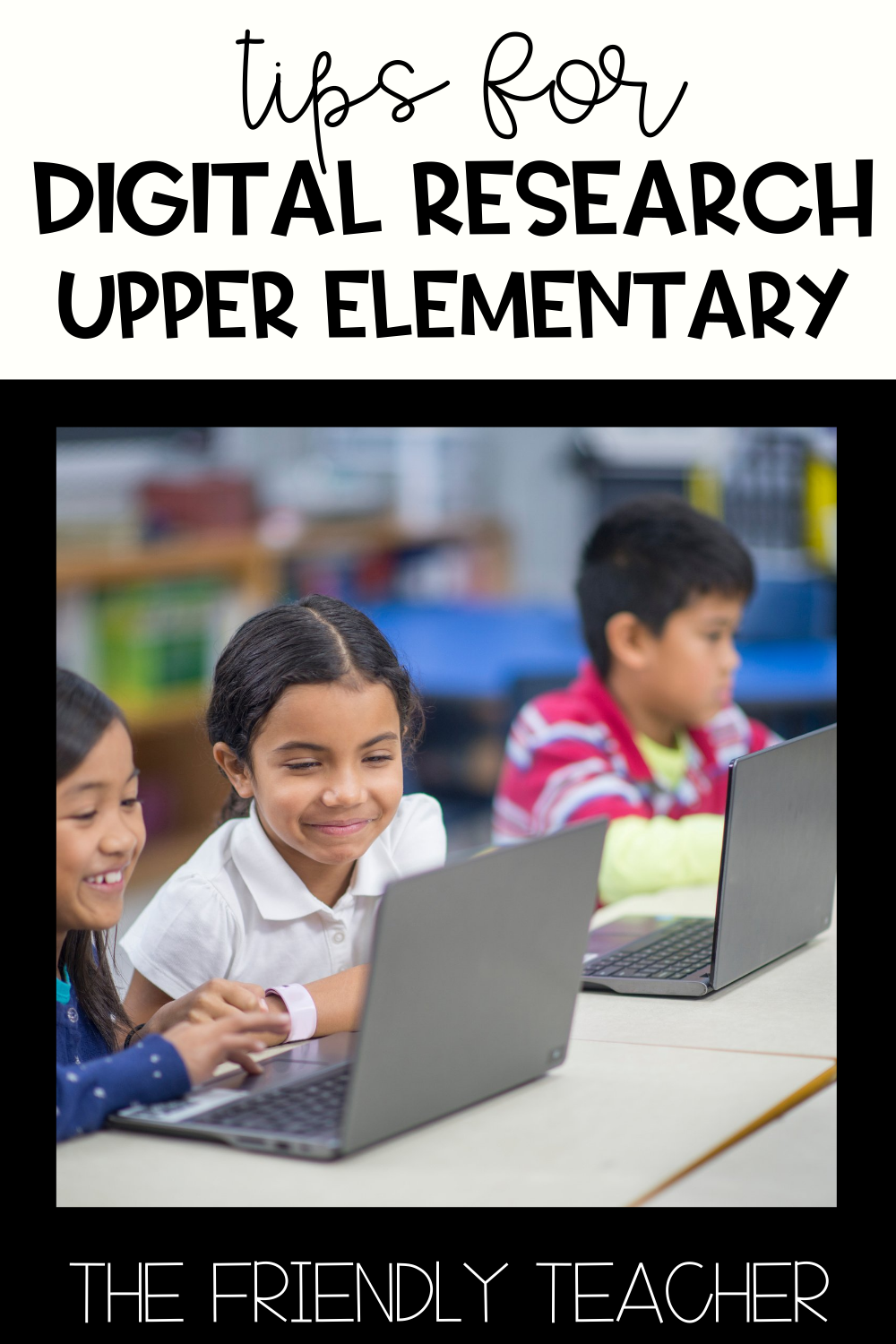
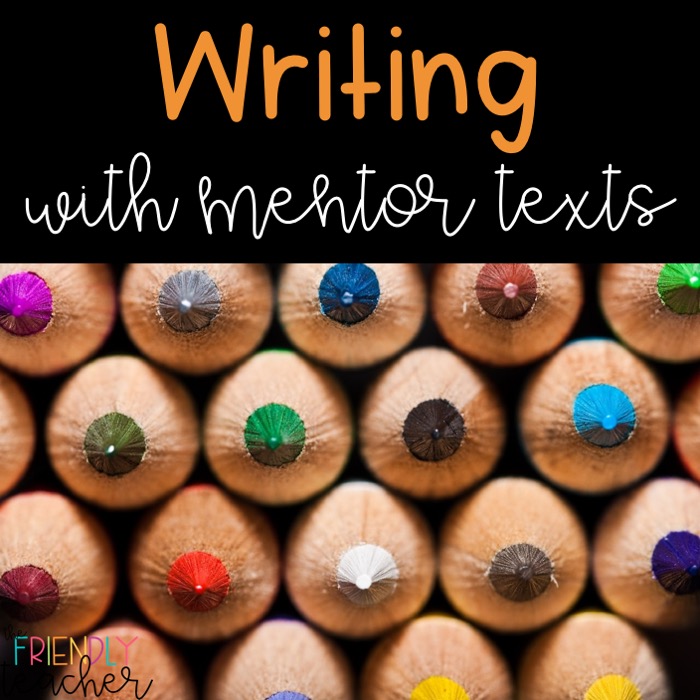
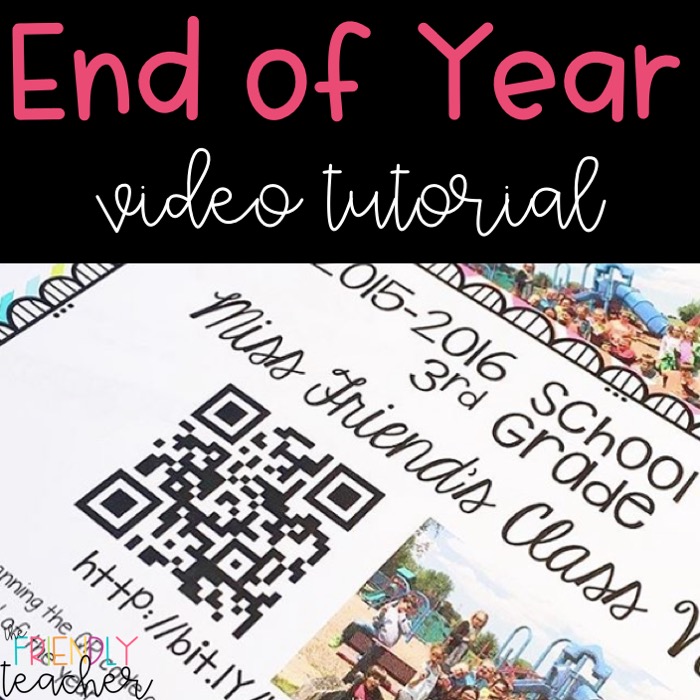

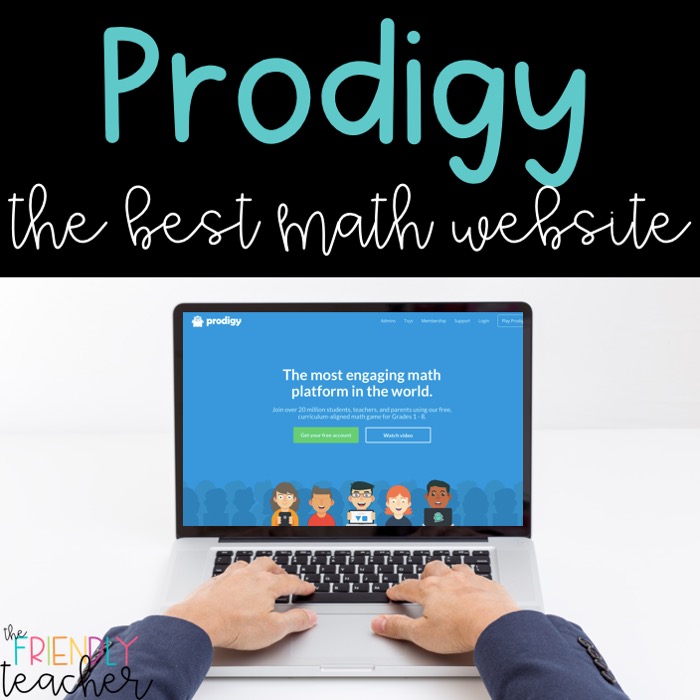
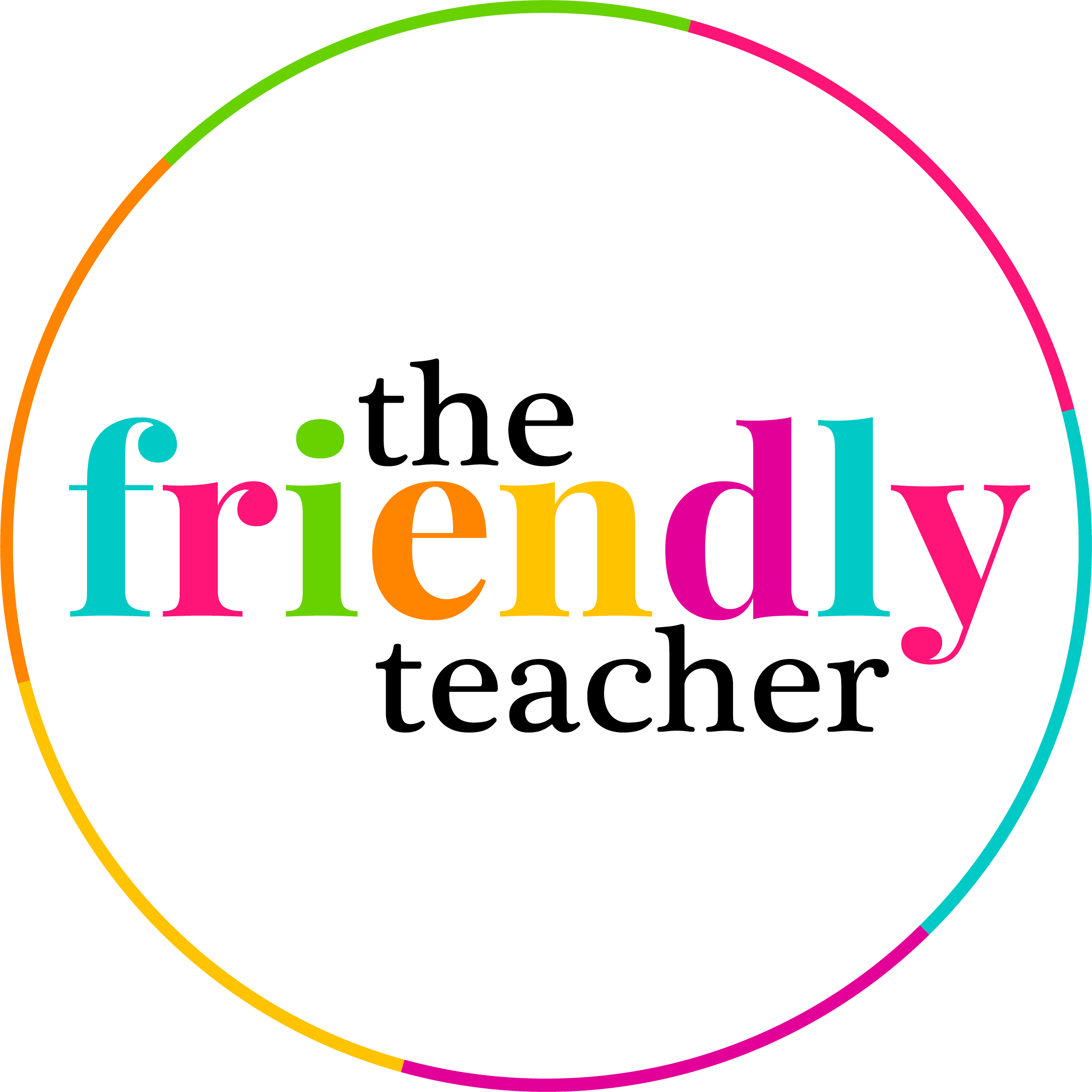
Hannah Wilde
I am so glad you’re here! I love helping 3rd-5th grade teachers by providing ideas, engaging resources, and professional development they need. I am a literacy coach who is here to help lessen the workload for teachers while making them more confident! I want students to be continually engaged in a rigorous environment!